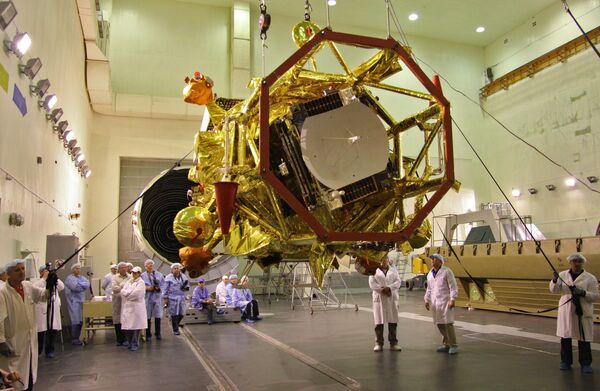Telemetry data received from a wayward Russian Mars probe is impossible to decipher, a space industry source said on Thursday.
The European Space Agency (ESA) tracking station in Perth, Australia, received signals from the Phobos-Grunt, which has been stuck at a low-Earth orbit since after its launch.
“It was impossible to get anything out of the telemetry received this morning - there are encoding/decoding problems,” the source said.
Telemetric data beamed from the spacecraft is encoded by default, he added.
“Tonight a command will be sent up for unencoded data,” he said.
The mere data transmission shows that the unit is “alive” and powered but it is impossible to say anything about the status of the onboard control system, the source said.
Later the in the day a Russian space station in Baikonur also received a signal from the spacecraft, the Federal Space Agency (Roscosmos) press service said.
It was not immediately clear whether the signal was “decipherable.”
Roscosmos said attempts to get into contact with the spacecraft will continue until it enters “the thicker layers of the atmosphere.”
Phobos-Grunt is expected to fall to Earth sometime in March.
Experts say the Mars mission has failed because the last “window of opportunity” for sending the probe to Mars closed on Monday. However, telemetric data from the spacecraft could help identify the causes of the failure and make adjustments for future interplanetary missions.
The probe was launched on November 9 but its engines failed to put it on course for the Red Planet. The craft, designed to bring back rock and soil samples from the Martian moon Phobos, is currently moving along a so-called support orbit.
According to NASA, Russia failed all 17 attempts to study the Red Planet since 1960.
The most recent failure occurred in 1996, when Russia lost its Mars-96 orbiter during launch.




